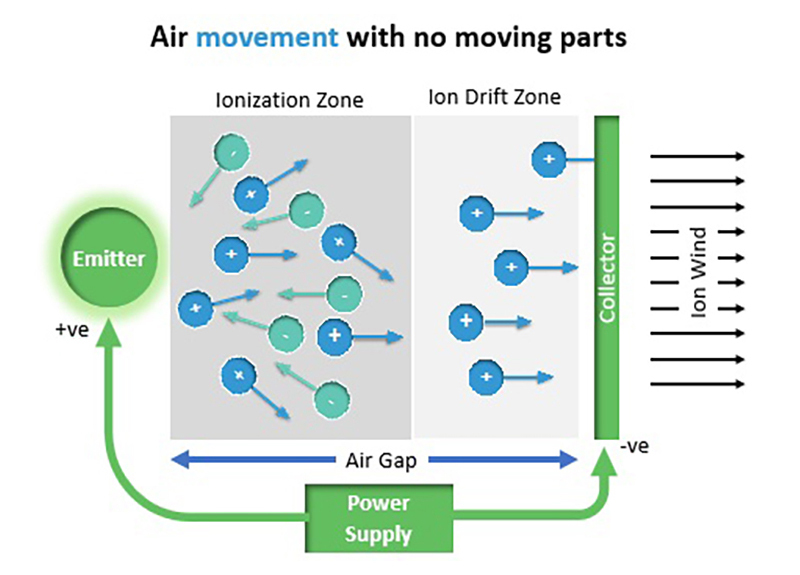Counterpoint: stop trying to make laptops thinner and implement realistic and functional air cooling
Technology
This is a most excellent place for technology news and articles.
Our Rules
- Follow the lemmy.world rules.
- Only tech related news or articles.
- Be excellent to each other!
- Mod approved content bots can post up to 10 articles per day.
- Threads asking for personal tech support may be deleted.
- Politics threads may be removed.
- No memes allowed as posts, OK to post as comments.
- Only approved bots from the list below, this includes using AI responses and summaries. To ask if your bot can be added please contact a mod.
- Check for duplicates before posting, duplicates may be removed
- Accounts 7 days and younger will have their posts automatically removed.
Approved Bots
Passive cooling is generally better for reliability if you can make it work, since all active airflow systems will degrade as dust and hair works into the airflow paths.
Plus, the two can be used in combination. Improved passive cooling systems will make active cooling better by reducing the need to run the active system all the time, or at least run it at reduced rates, which will make the whole system last longer and reduce maintenance.
But this system still makes airflow right? Just without moving parts.
Make the chassis out of aluminium so the whole bastard is a heatsink.
Slaps roof of laptop This bastard can cook so many egg omelettes
Two eggs and one sausage
Apple has been doing that for years
They already do. My thinkpad T14s is incredibly thin, and it can dissipate ~~400~~ 40 watts of power. My P1 dissipates 160+ watts and it’s also very thin.
T14s
You mean 40W? Can't imagine a T config that'd do 400.
Yes, single zero. 400w would indeed be VERY impressive.
Well there's no shortage of those, and they're unusually cheaper too (unless they're specced out). I prefer a thin silent one myself, so I welcome this innovation.
Speaking from experience here, and limited information from the company, this looks like a polished version of a high-voltage grid accelerator.
https://ventiva.com/how-it-works/
What can be an expected concern is that besides ionizing air and imparting motion to neutral air molecules as the ionized ones rush from one plate to the other, that same effect can and will charge dust particles. That "collector plate" will need to be easily accessible.

Appreciate the link. I've got a hand-me-down Ionic in my house, and knowing that I can skip running it for basically the same effect means I can save a couple of cents on my electricity bill.
Gonna take another look at those IKEA tables with the HEPA filters built in. Those seem handy to avoid having to dust so often.
Sure thing, glad to be of some kinda help. Ozone can be a good irritant, never mind charged dust sticking to stuff it ordinarily wouldn't.
I hope this company has a trick for dust control, but I'm expecting that'd be tougher than figuring out the ionic wind part.
Ionic acceleration of air needs high voltages and the air gets ionized (the reason people recommend against vacuuming a PC). I'm surprised that it works at all in close proximity to sensible tech.
Edit: right, low static pressure, meaning: lower voltages. But still not low.
They use a grounded faraday cage around it. Video on it where he touched on that https://youtu.be/fyai_kUYhLs
Can't watch the video rn, anything about the dust problem?
He just mentions they have a solution but it’s patented so they wouldn’t talk about it. Take that as you will of course
Strange, patented means it should be findable on the USPTO system, diagrams and all. And yet..
the reason people recommend against vacuuming a PC
A regular vacuum isn't doing anything with ions or high voltages. Moving air can generate potentially harmful static electricity, but usually the reason people recommend against vacuuming a PC is because if you spin the fans doing that, the motors inside turn into generators and drive current back into your PC parts that could damage them.
Moving air can generate potentially harmful static
Well, and what do you think creates that static electricity? Ionization.
Feeding back electricity, that's why motors usually have a diode or something.
I think Dave2D made a video about those. He was cautiously optimistic.
Doesn't an ionic air moving system like this put out a big ass EM field?
Im a fabricator who don't fuck with the lecky, but maybe someone more educated than me can explain why this doesn't wipe your memory every time the cooling kicks on
The "fan" sits inside a faraday cage.
Is this the same way those bladeless Dyson fans work?
Bladeless Dyson's have the fans hidden, as far as I know. But they still have a bladed fan in there.
They aren't actually bladeless. The fan is just hidden in the base.
Those things have a fan with blades, just stuck in the base.
I'm more excited about those Frore MEMS airjet chips.
That's actually in at least one consumer product right now.
I see what they did there with the "ICE9" name.
If it works, it sounds like it'd be something meant for a future Steam Deck to experiment with.
So my take away from all of this is that this is a laptop that can propel itself around in space. Pretty neat.